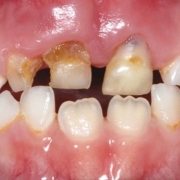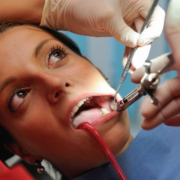Caries as a disease is one of the most commonly occurring diseases in the world. Most times, it affects few teeth at a time in one’s mouth and since multiple factors influence it, it can be salient in its progression. There are cases, however, where it rapidly progresses and affects more than ten teeth in the mouth at a go. When this occurs, its nomenclature changes to “rampant caries.”
What causes caries?
Caries occur when bacteria that are in the mouth break down residual food in the mouth to form acid and this acid, in turn, dissolves the tooth structure. The teeth are one of the hardest tissues in the body and destroying them is no easy feat, therefore the disease progression is slow.
Risk factors for rampant caries
Caries are also influenced by risk factors that can hasten their occurrence. These include;
- Diet; bacteria break down sucrose more than any other sugar. Sucrose is mostly found in processed foods in large amounts for example cakes, sweets, chocolates, soda and so on. This is why it is important to watch your diet to reduce your caries risk.
- Hygiene; brushing our teeth removes the residual food from them leaving behind little or no substrates that can be broken down by the bacteria. This thus reduces our risk of getting dental caries.
- Saliva; saliva plays many roles in our bodies and one of them is providing a washing mechanism for our teeth and also remineralization. If your saliva production is compromised for one reason or another, the chances of you getting caries increases.
- There are many other factors like age, genetic predisposition, geographic location, socioeconomic status that increase the risk of one getting caries. This is why some people may get caries often in spite of adhering to oral hygiene and diet more than others.
Rampant caries are more common in children. This is because milk teeth are weaker than permanent teeth and also children feed more on cariogenic foods compared to older people but brush their teeth less efficiently. Bottle feeding also increases the exposure to cariogenic agents.
Management of rampant caries
When a disease is rampant, its management must be prompt and aggressive. Go for your dental checkups, take your children for their dental checkups as recommended by the dentists. This will have each case managed as it shows up and will stay the excessive discomfort and pain that comes with decayed teeth. It is also important that children are taught brushing right from when the first teeth appear in the mouth and this should be supervised so that it is done well.


